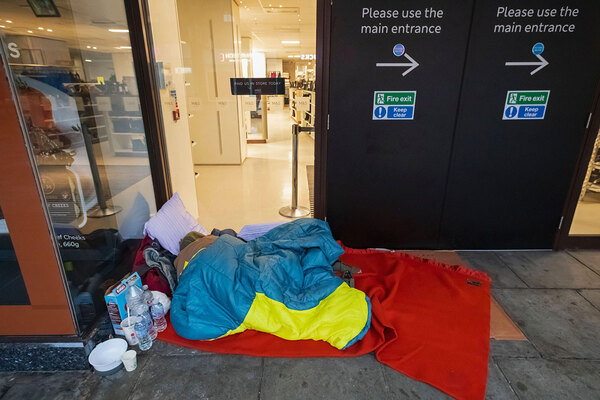You are viewing 1 of your 1 free articles
Bristol Council to cut thousands of low-priority applicants from housing waiting list
Around half of the 19,000 households on the waiting list for social housing in Bristol are to be effectively removed from it after council chiefs admitted they had “little chance to no chance” of being allocated a home.
Bristol City Council cabinet members approved the decision on 4 April after a report stated that fewer than 1% of the more than 9,500 households in Band 4 – the lowest priority group – were expected to be offered accommodation.
The report was presented by Tom Renhard, cabinet member for housing delivery and homes at Bristol Council, and said the local authority should manage the expectations of this group.
It added: “There is currently little to no chance of being successfully housed from band four and being on the register may be giving people false hope.”
The report noted that managing the high number of bids in Band 4 also took up “significant officer time”.
Those on the waiting list can bid for housing on the council’s HomeChoice website. Around 500 new households are added to the list each month.
Housing is generally offered to bidders with the highest priority, but the report stated that supply is “seriously limited and falls far short of the number of people who need housing”.
Last week’s decision will remove the right of those in band four to place bids on most homes.
“This group would be signposted to other housing options like private rented, shared ownership and community-led housing,” the report said.
Older people in Band 4 will still be able to look for sheltered or age-restricted housing.
The changes will mean all care leavers in need of social housing, as well as those looking to downsize, will move up to Band 1 – the highest priority group.
Anyone at risk of homelessness and young people evicted from their parents’ homes will be placed in Band 2.
Reacting to the decision on Bristol mayor Marvin Rees’ blog, Mr Renhard said the council needs to find a better way of allocating accommodation and that it should increase its housing stock.
“The main change to the policy is that we will move to being more proactive in helping households find a home and ensure that at least half of all offers are made direct,” he said.
Use of local lettings policies will be extended to more parts of the city, giving people priority to stay in their local community.
Mr Renhard said this decision would mean “people are supported into accommodation within a locality that they have a connection to ensure as little disruption as possible – be it to school, work or other local commitments”.
The report added: “By increasing our ability to intervene to match people to suitable properties and make them direct offers, we believe we will be able to address homelessness and other critical situations and move people on into suitable properties faster.
“In doing so, we expect to reduce the volume and duration of requirements for temporary accommodation.”
Speaking at last week’s meeting, Mr Rees said the decision was “about making the machinery work”, adding: “It’s not glamorous, but it makes a huge difference to people who need the machinery to work.”
The changes are set to be introduced over the following 12 to 18 months, with the band-four restrictions planned to take effect from October 2024.
Bristol City Council has been contacted for comment.
Sign up for our Council Focus newsletter
Already have an account? Click here to manage your newsletters












